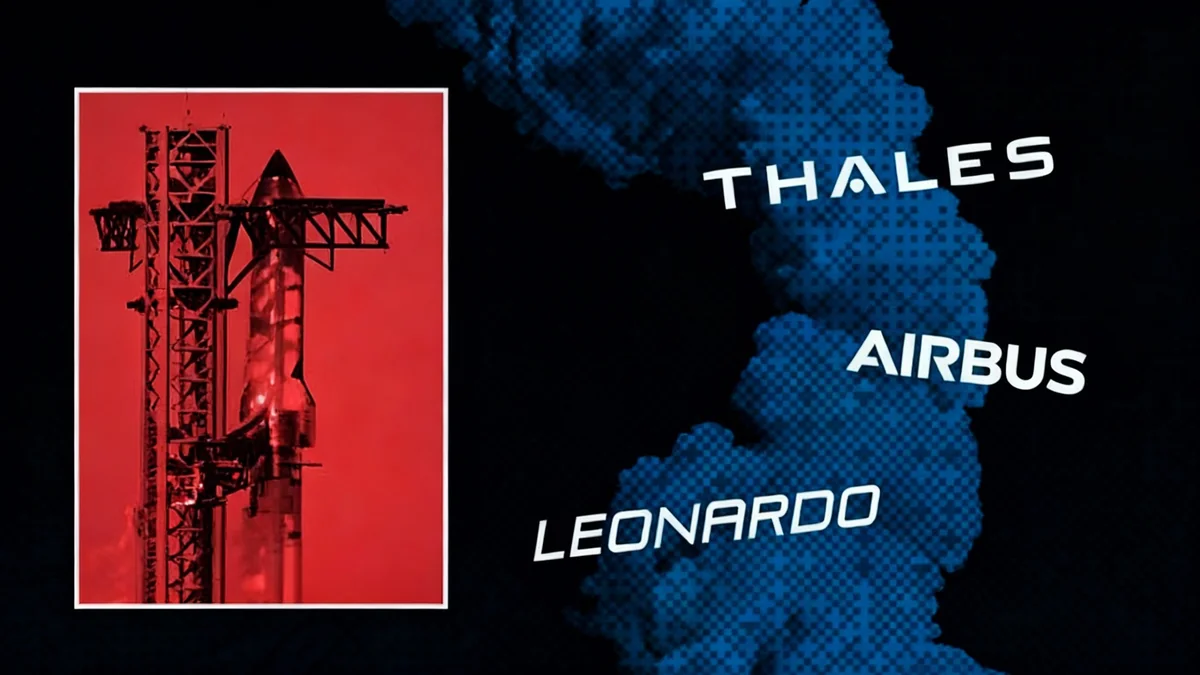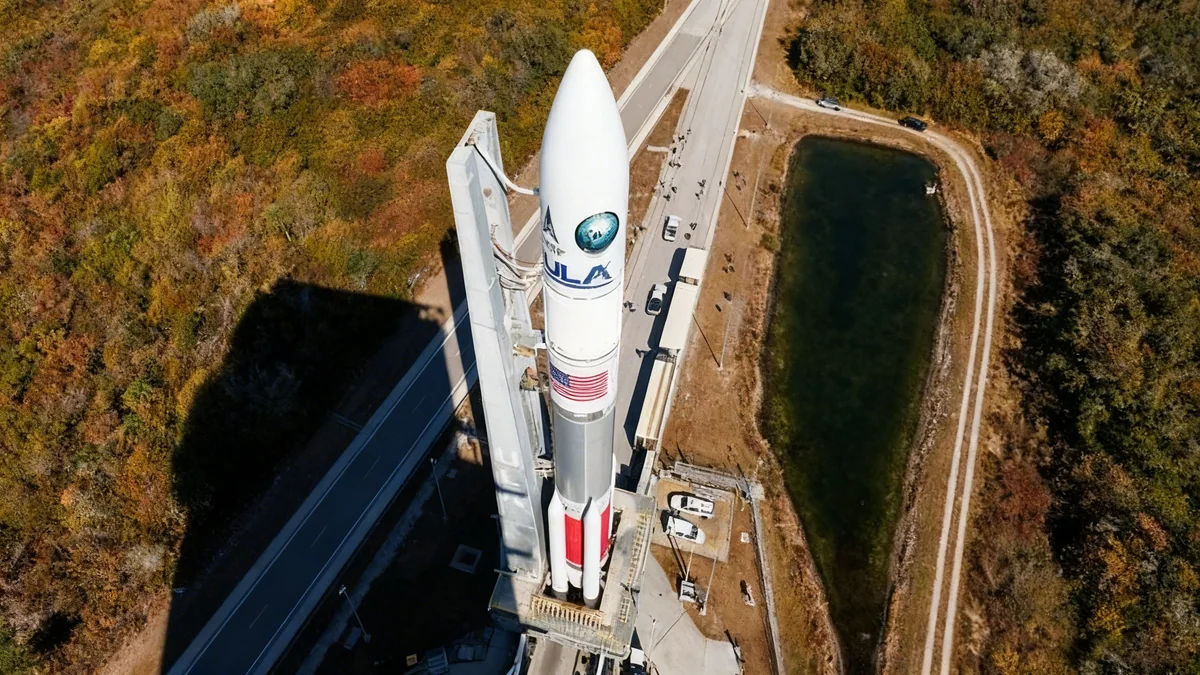Three of Europe's largest aerospace and defense firms—Airbus, Leonardo, and Thales—have announced a landmark agreement to merge their space-related businesses. The move is designed to create a new, unified European entity capable of competing more effectively in a global market increasingly dominated by American companies like SpaceX.
The companies have signed a memorandum of understanding to establish a new venture that will consolidate their satellite manufacturing, space systems, and related services. This strategic consolidation aims to enhance efficiency, drive innovation, and secure Europe's position in the rapidly evolving space industry.
Key Takeaways
- Airbus, Leonardo, and Thales are merging their space divisions into a single new company.
- The new entity will employ approximately 25,000 people and generate an annual turnover of around €6.5 billion.
- This merger is a direct strategic response to the market disruption caused by Elon Musk's SpaceX.
- The new company is expected to be operational by 2027, pending regulatory approvals.
A Strategic Response to Market Disruption
The decision to form this new company comes as the European space sector faces significant pressure. The rise of private American space firms, most notably SpaceX, has fundamentally altered the landscape for satellite deployment and space services. SpaceX's Starlink constellation, a network of thousands of small satellites in low Earth orbit, has created new demands and business models that traditional European players have struggled to match.
By combining their resources, Airbus, Leonardo, and Thales aim to create a more agile and cost-effective organization. The goal is to better address the shift in the market, which now favors large-scale satellite constellations over single, complex geostationary satellites.
This consolidation is seen as a crucial step for Europe to maintain its autonomy and competitiveness in space, a sector vital for telecommunications, navigation, and national security.
The SpaceX Effect
Elon Musk's SpaceX has revolutionized the space industry with its reusable rocket technology, drastically lowering launch costs. Its Starlink project has further disrupted the market by demonstrating the viability of massive low Earth orbit satellite networks for global internet coverage, forcing legacy aerospace companies worldwide to rethink their strategies.
Details of the New European Space Entity
The newly formed company will be a formidable force in the global space market. It is projected to have a combined workforce of approximately 25,000 employees and generate an annual turnover of about €6.5 billion.
The ownership structure will be shared among the three parent companies:
- Airbus: 35%
- Leonardo: 32.5%
- Thales: 32.5%
This balanced shareholding reflects the significant contributions of each partner to the venture. The new entity will also begin with a substantial order backlog, estimated to be worth more than three years of its projected sales, providing a stable foundation from its inception.
Projected Financial Impact
The companies anticipate "significant synergies" from the merger. They project cost savings that will result in a mid-triple-digit million euro increase in operating income within five years of the deal's closing, with further operational efficiencies expected in the long term.
Leadership Voices and Future Outlook
In a joint statement, the chief executives of the three companies—Guillaume Faury of Airbus, Roberto Cingolani of Leonardo, and Patrice Caine of Thales—hailed the agreement as a landmark moment for the continent's space ambitions.
"The creation of a new European space champion is a pivotal milestone for Europe’s space industry. By pooling our talent, resources, expertise and R&D capabilities, we aim to generate growth, accelerate innovation and deliver greater value to our customers and stakeholders."
The path forward involves several key steps. The deal must first clear regulatory hurdles, a process that will be closely watched by European competition authorities. The companies aim to have the new entity fully operational by 2027.
Negotiations with unions will also commence shortly to manage the integration of the different workforces. While the companies have stated that no immediate site closures or job losses are planned, some industry insiders believe that long-term restructuring to achieve the promised efficiencies may be inevitable.
The governance structure of the new company has not yet been detailed, but it will be a critical factor in ensuring the successful integration of three distinct corporate cultures into a cohesive and competitive new champion for European space.





